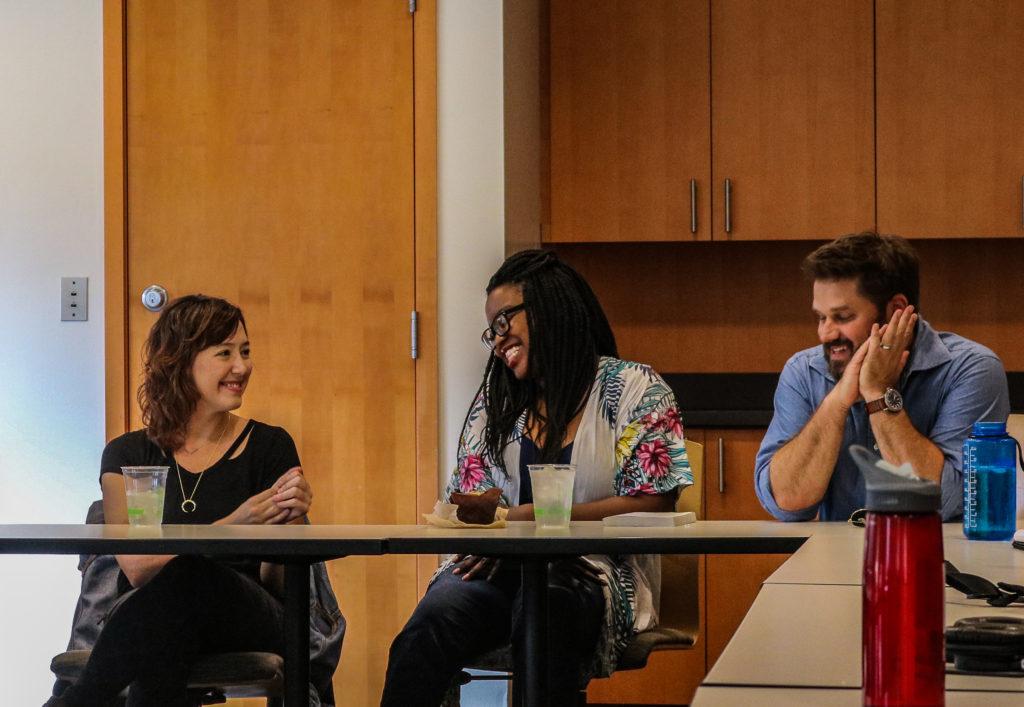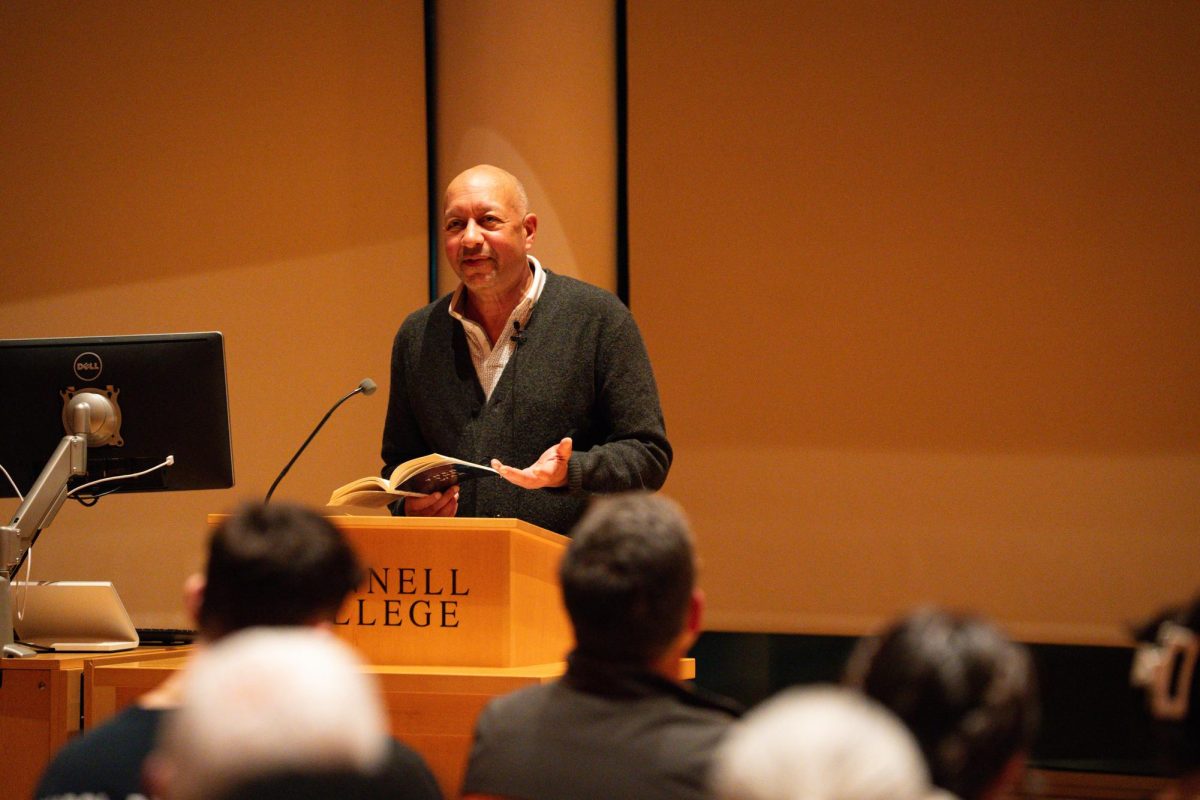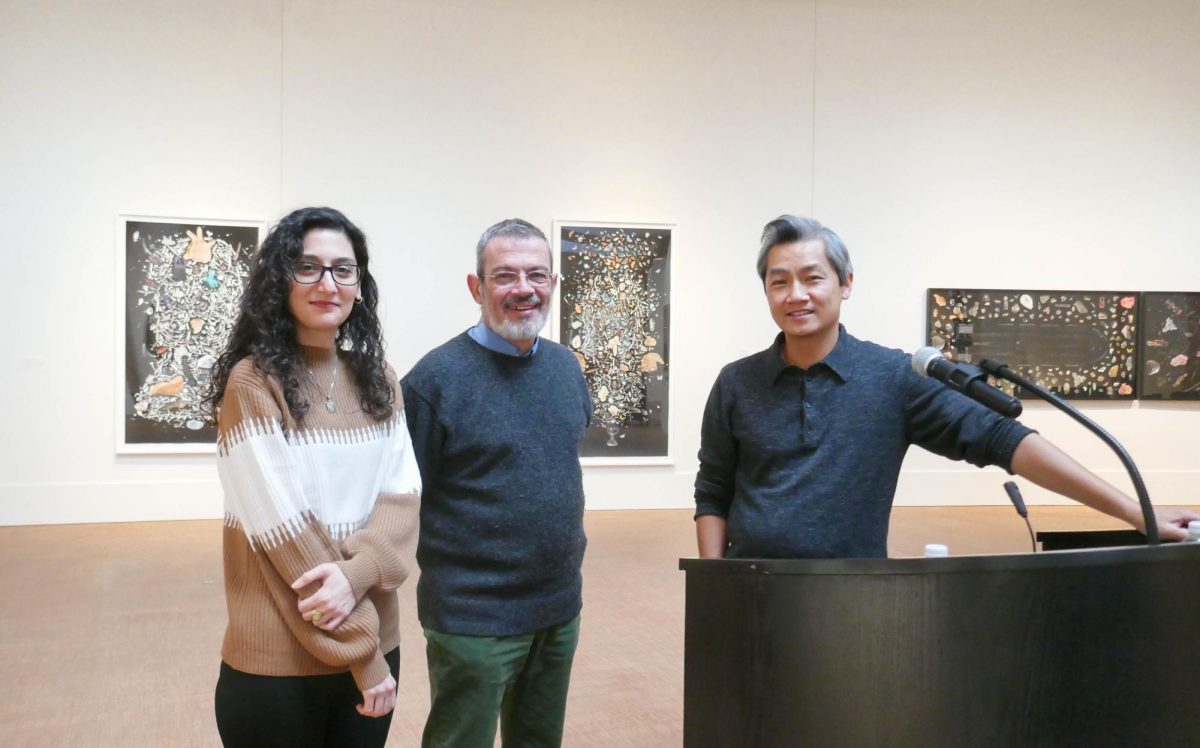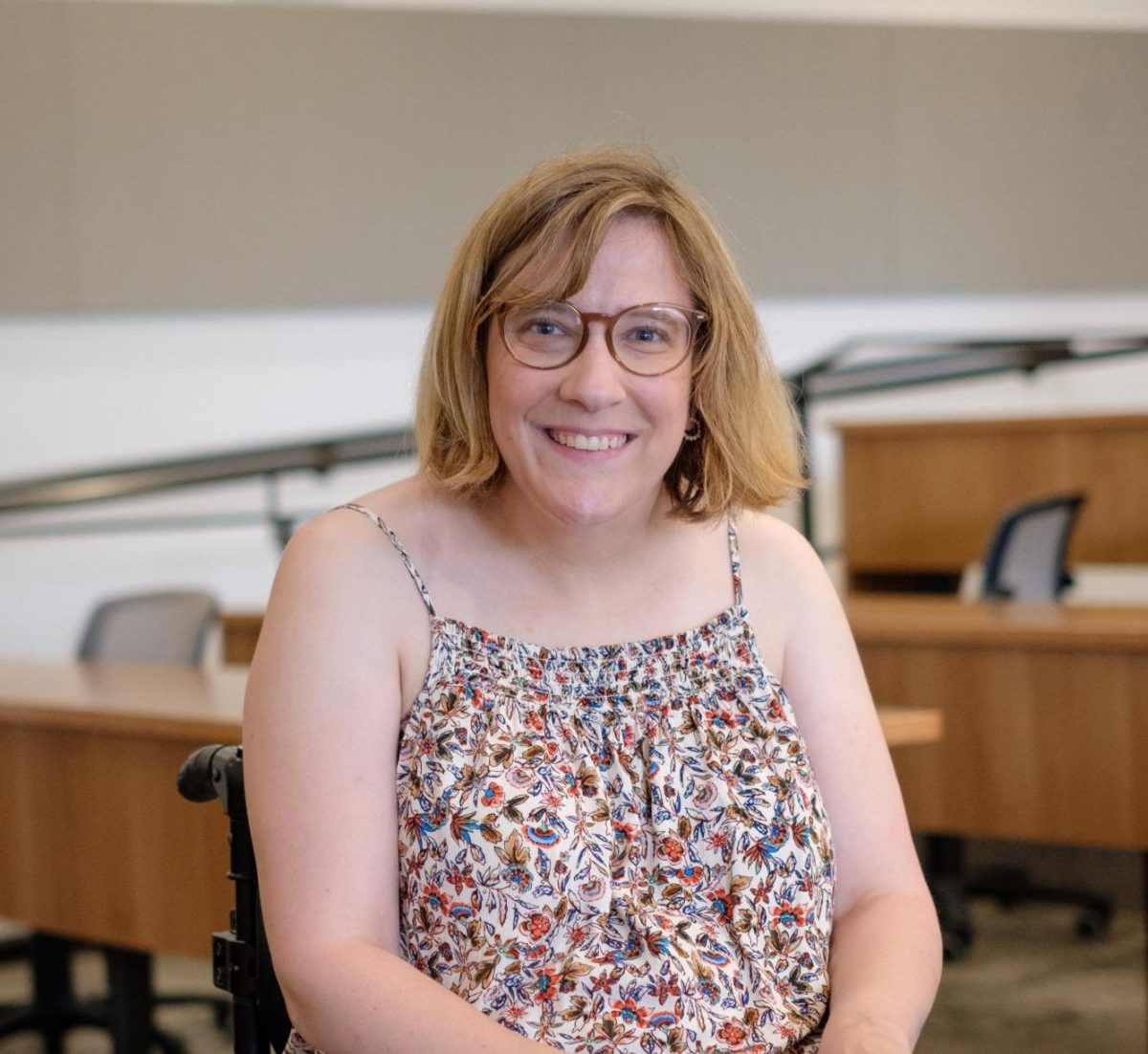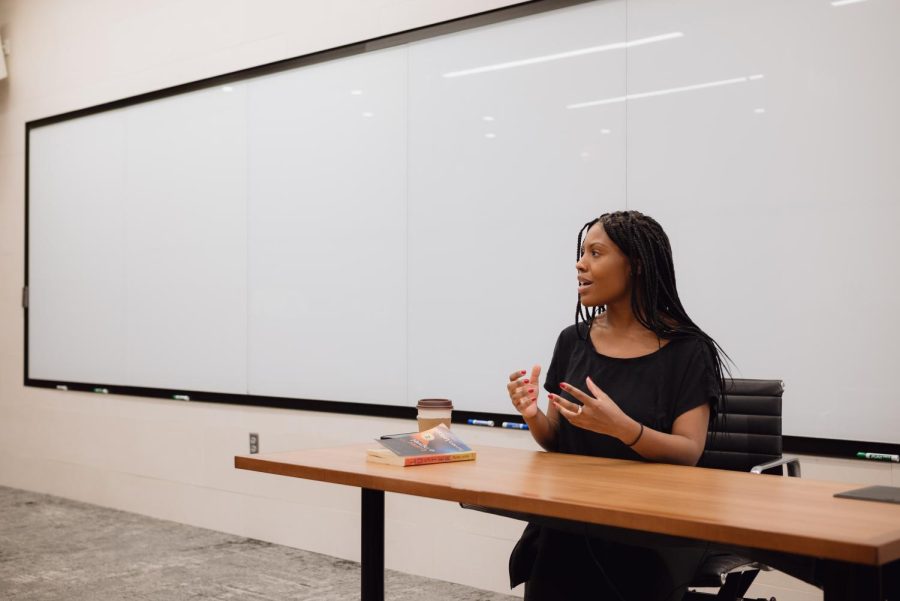Keah Brown, author of The Pretty One: On Life, Pop Culture & Other Reasons To Fall in Love with Me, seeks to advocate for disability justice through her written work. She has also published her writing in magazines such as Glamour, Teen Vogue, Allure and others. Brown was also named one of 2018’s 100 most influential African Americans in The Root magazine.
Lyz Lenz just recently published God Land, a nonfiction book about her experience with both personal and societal transformation that has occurred since 2016. Her next book, Belabored, is forthcoming next spring by Bold Type Books. Lenz’s writing has also been featured in the anthology Not that Bad, The Huffington Post, The New York Times and more.
Brown and Lenz visited Grinnell College on Thursday, September 12 to speak with students at a roundtable and read from their latest books. The two authors sat down with the S&B’s Eva Hill to discuss nonfiction, their first published work and the writing process.
Hill: My first question for both of you is, what was either the first piece that you got published or your favorite early published piece?
Brown: The first thing I ever published was a poem, and it was the months writing letters to each other, so July wrote a letter to August, August wrote a letter to September, and I was super proud of it, I thought it was super clever – let me be serious, it was a really clever idea and it’s an OK poem at best. But the first essay that I ever published was for a website called femmesplain.com and I wrote about being jealous of my twin sister, and then the first really good piece I wrote was for Atticus Review, and I wrote about losing my grandmother and my uncle.
Lenz: I wrote for the school newspaper at my college, and something happened where I had written a column and I don’t know how this happened, but a textbook picked it up and asked for permission to republish it. That was one of those moments where I was, like, “I could be a writer,” because this thing had just happened, and I was so excited about it. That was my first big early publication, and I didn’t have any for many years after that, but then I did start writing for a place called Dragon Fire Magazine, which was out of Drexel University, and they’re now called the Smart Set, but I wrote for them for a couple of years, just writing fun essays about weird places in Iowa.
Hill: Keah, you mentioned earlier [at the Writers @ Grinnell roundtable event] that your first love in writing was fiction – what would you say are the similarities between an essay collection and a novel?
Brown: The way that I craft stories. A lot of my fiction, short stories and stuff – they’re about messy women who don’t really have their lives figured out, but they’re trying their best, and in writing this book, I realized that who I once was was that same messy person. I’m still a mess now, but I realize my mess, and a lot of it is before, when I was writing a lot of these fictional women who didn’t realize their mess, I was writing versions of myself, just more intense mess for them, because I was like, “I’m going to be really dramatic and I’m going to go through some stuff,” because I thought that what made me a better writer was putting so much trauma on them, which I think in hindsight is bad – you don’t have to do trauma for trauma’s sake.
Hill: Lyz, how did your editing background play into writing your own book? Did you ever look at it through the lens of being an editor?
Lenz: No. As a writer, I don’t think like an editor – I can’t do that; I think that in order to sit down and put words on the page, you just have to get it out. Where my editor sense comes in is probably in the second and third draft – it’s where I’ve had enough distance of time between my writing and the first draft, and that’s when I start thinking about things like adverbs and structure. In drafting, I just really try hard to be who I need to be on the page in the moment. I do think about ideas in an editor way, but I usually try just to be as unfiltered as possible.
